Keywords: Offshore Detention
There are more than 24 results, only the first 24 are displayed here.
Become a subscriber for more search results.
-
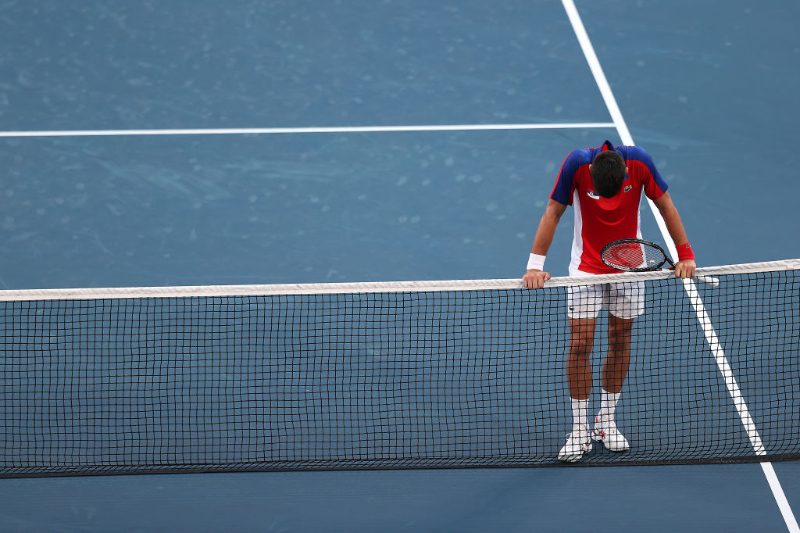
AUSTRALIA
- Binoy Kampmark
- 08 February 2022
12 Comments
It should be troubling for anyone, religious, secular or agnostic, to be told that a human being wields anything approximating to ‘God like’ powers. That very suggestion implies a power unreviewable, unaccountable and at odds with the earthly rule of law.
READ MORE 
-
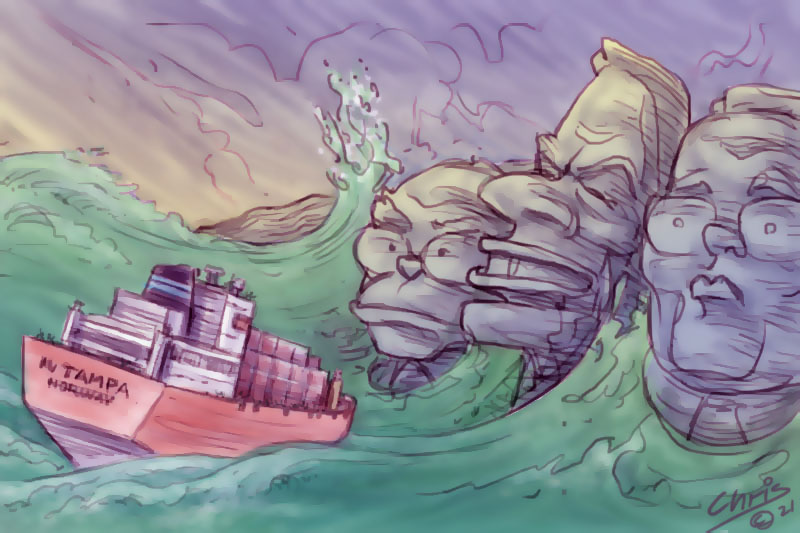
INTERNATIONAL
- Binoy Kampmark
- 07 September 2021
23 Comments
It took 438 desperate human beings upon the overladen wooden fishing boat, the KM Palapa, to present Australia’s Howard government in August 2001 with an electoral opportunity. At first, there was feigned ignorance from Canberra about any signs of desperation. The vessel, lacking power, lay some 100km off Christmas Island. Despite a coast guard plane noting men jumping up and down on the roof in a frenzy, nothing was initially done.
READ MORE 
-
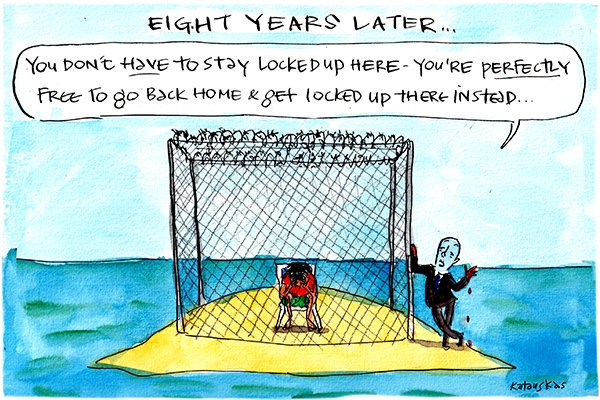
CARTOON
- Fiona Katauskas
- 21 July 2021
1 Comment
READ MORE 
-
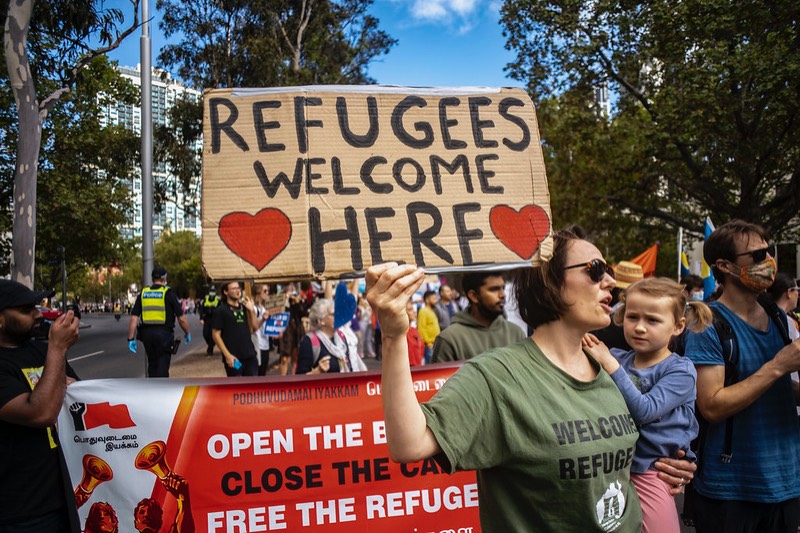
FAITH DOING JUSTICE
- Vincent Long Van Nguyen
- 24 June 2021
15 Comments
With the average length of detention in Australia now at an historic high, it is timely to review how immigration detention is used. It should be a last resort that is used for the shortest practicable time so that people who pose little risk to the community are not unnecessarily deprived of their liberty, and that they are able to contribute to the community.
READ MORE 
-
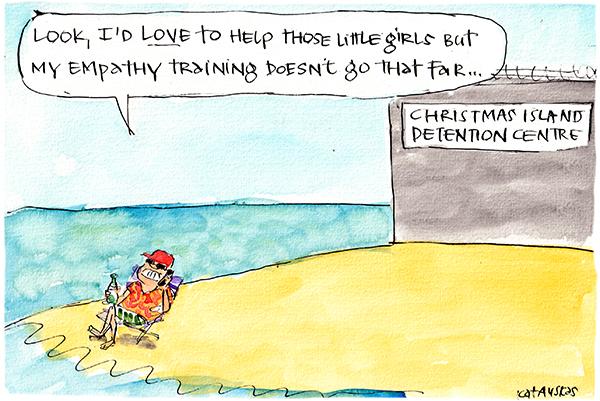
CARTOON
- Fiona Katauskas
- 08 June 2021
2 Comments
READ MORE 
-
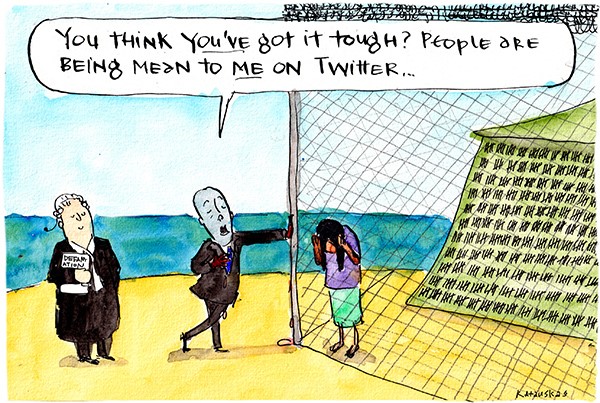
CARTOON
- Fiona Katauskas
- 27 April 2021
READ MORE 
-
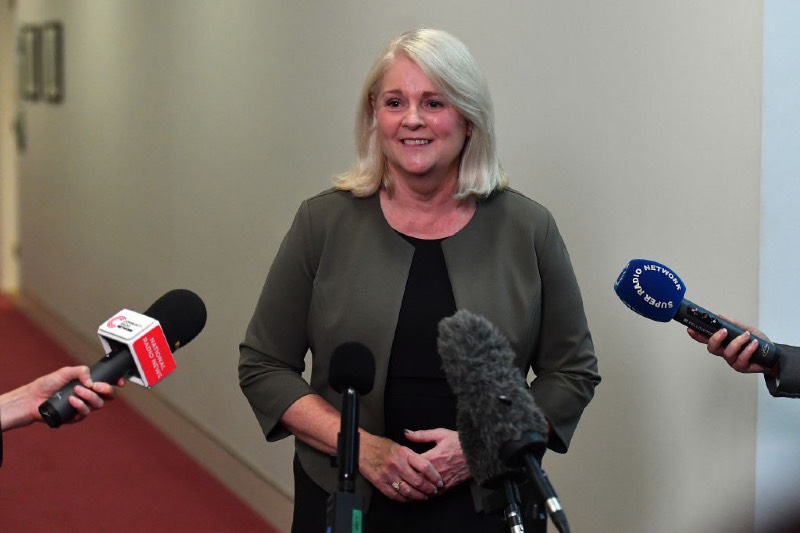
AUSTRALIA
- Claire Victory
- 08 April 2021
8 Comments
The treatment of refugees and people seeking asylum calls for a determined response on the back of years of poor public policy that has led to the misery of thousands and cost Australian taxpayers billions. I stand to support the Minister in the early days of her new role to make compassionate and sensible decisions, to find a different path for the resolution of the challenges she faces.
READ MORE 
-
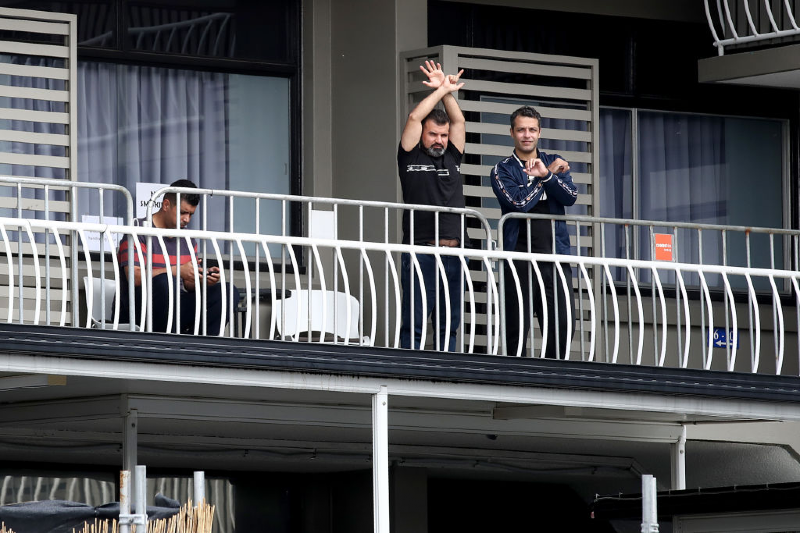
AUSTRALIA
- Andra Jackson
- 15 December 2020
5 Comments
With all the congratulations that have been going around following Melbourne achieving zero COVID-19 cases there is one group that has been entirely overlooked. These particular people remain in a prolonged form of hotel quarantine, unable to mix with the general public. They are refugees and asylum seekers brought to Australia under the now defunct Medevac legislation from Nauru and Manus Island.
READ MORE 
-
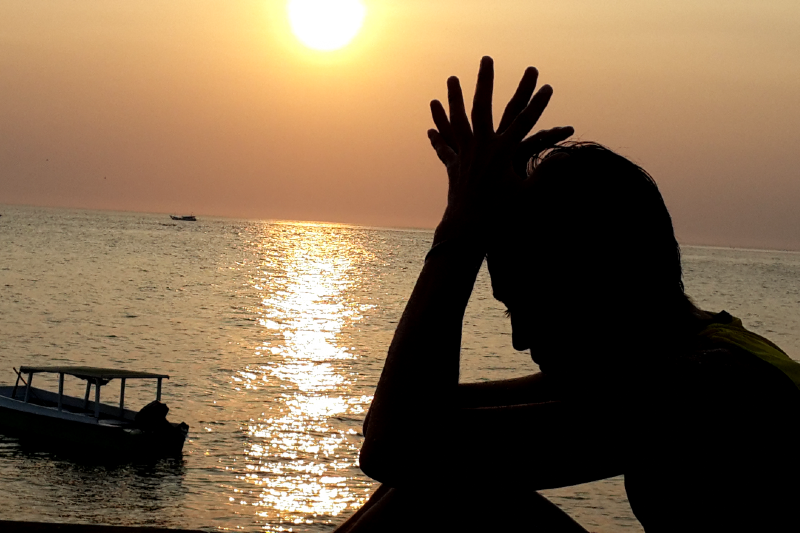
INTERNATIONAL
- JN Joniad and Ashfaq Hussain
- 10 December 2020
3 Comments
I was just fifteen years old when I was forced to run for my life. I dreamed of seeking a better education in Australia and becoming a pilot. Instead, I became a refugee in Indonesia, which does not recognize my existence and basic rights. I am even refused an education in this country. I have been in limbo for the last eight years.
READ MORE 
-
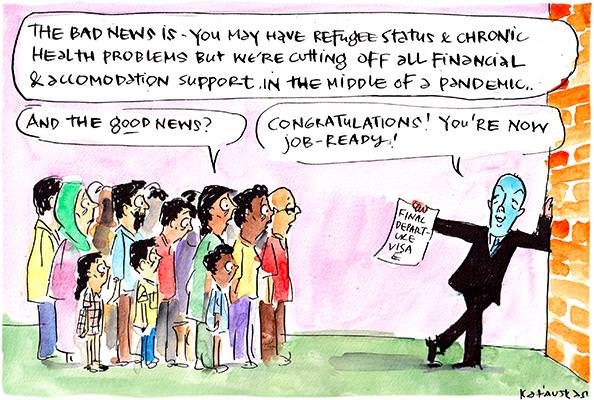
AUSTRALIA
- Andrew Hamilton
- 29 October 2020
8 Comments
If society were a mine, refugees would be the canaries in it. Their condition reveals whether the currents of public air are pure or toxic. By that standard the present currents in Australia are noxious. They mark a change from the first generous response to the coronavirus to the meaner reconstruction of the economy.
READ MORE 
-
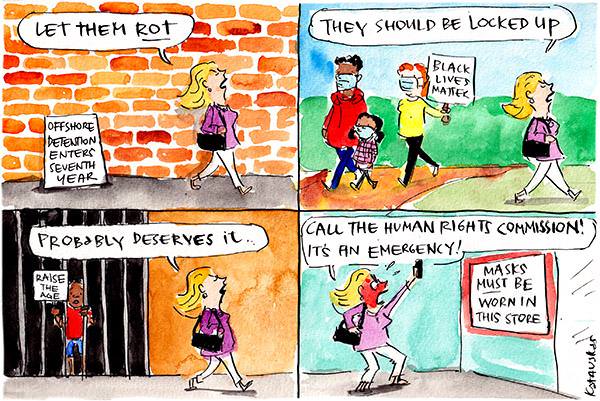
CARTOON
- Fiona Katauskas
- 28 July 2020
READ MORE 
-
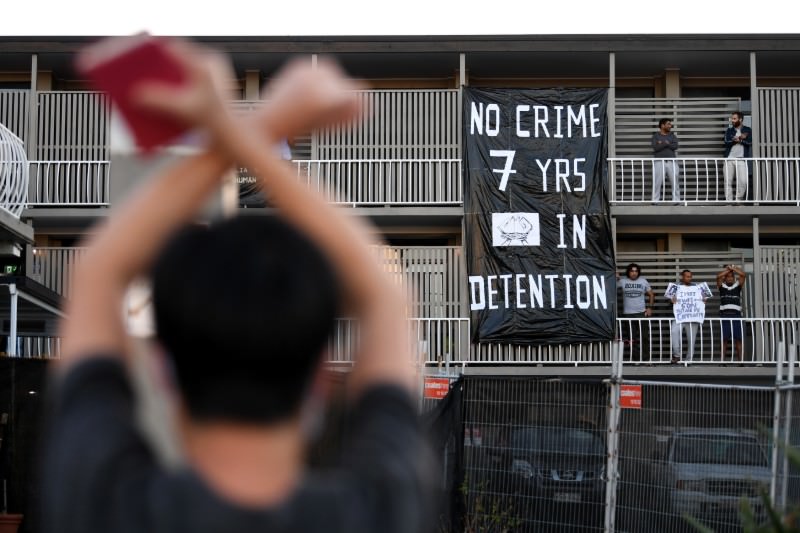
AUSTRALIA
- Andra Jackson
- 02 June 2020
14 Comments
Broken wall hand sanitizer containers, hand soap shared by a large number of people, and six people sharing a bedroom would not be allowed at hotels where returning travellers are in 14-day lockdowns. They would be viewed as breaking government restrictions on safeguarding against the spread of COVID-19. But these are the conditions at Kangaroo Point hotel, the Brisbane hotel where around 114 refugees and asylums seekers are under the coronavirus lockdown.
READ MORE 